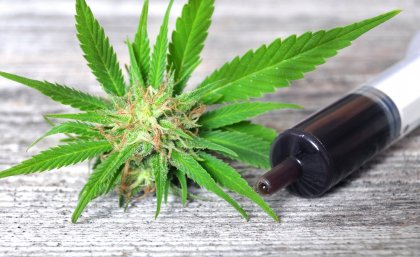
University of Queensland researchers are concerned the recent legalisation of medicinal cannabis in Australia may give rise to super-potent cannabis concentrates with associated harmful effects.
UQ Centre for Youth Substance Abuse Research’s Dr Gary Chan, who led the butane hash oil study, said a significant proportion of cannabis users used the concentrate.
“Butane hash oil is a cannabis concentrate that is over 10 times more potent than herbal cannabis,” Dr Chan said.
“Although users were more likely to report medical use, the use of butane hash oil was associated with high levels of depression, anxiety disorder and other illicit substance use.
“These results were consistent globally.”
The research was based on data from the Global Drug Survey, the world’s largest drug survey that collects data about drug users.
The tetrahydrocannabinol (THC) content of butane hash oil can be as high as 80 per cent. In comparison, the THC content in herbal cannabis is approximately 9-15 per cent, depending on the method of cultivation.
Butane hash oil is produced by solvent extraction (maceration, infusion or percolation) of marijuana or hashish.
After filtering and evaporating the solvent, a sticky resinous dark liquid with a strong herbal odour remains.
Dr Chan said there had been a rise of butane hash oil use in the United States, and considered it to be an unexpected by-product of cannabis legalisation.
“The production and promotion of hyper-potent cannabis concentrates with 70 to 80 per cent THC now account for 20 per cent of the markets in Washington and Colorado, and use of these hyper-potent products seem to be gaining popularity in Canada,” he said.
“Given that Australia has recently legalised medical cannabis use, surveillance needs to take note of any rise in the use of concentrates because it can be produced with relatively simple equipment that is easily accessible.
“However, at this stage there is no evidence for medical use of butane hash oil for any health condition.”
The study is published in Drug and Alcohol Dependence journal.
Media: Dr Gary Chan, c.chan4@uq.edu.au, 0422 756 698, Kirsten O’Leary, UQ Communications, kirsten.oleary@uq.edu.au, +61 73365 7436












